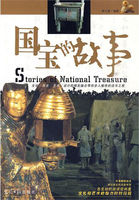Uncle Tom was much in Eva's room. The child suffered much from nervous restlessness, and it was a relief to her to be carried; and it was Tom's greatest delight to carry her little frail form in his arms, resting on a pillow, now up and down her room, now out into the verandah; and when the fresh sea-breezes blew from the lake,--and the child felt freshest in the morning,--he would sometimes walk with her under the orange-trees in the garden, or, sitting down in some of their old seats, sing to her their favorite old hymns.
Her father often did the same thing; but his frame was slighter, and when he was weary, Eva would say to him, "O, papa, let Tom take me. Poor fellow! it pleases him; and you know it's all he can do now, and he wants to do something!"
"So do I, Eva!" said her father.
"Well, papa, you can do everything, and are everything to me.
You read to me,--you sit up nights,--and Tom has only this one thing, and his singing; and I know, too, he does it easier than you can. He carries me so strong!"
The desire to do something was not confined to Tom. Every servant in the establishment showed the same feeling, and in their way did what they could.
Poor Mammy's heart yearned towards her darling; but she found no opportunity, night or day, as Marie declared that the state of her mind was such, it was impossible for her to rest; and, of course, it was against her principles to let any one else rest.
Twenty times in a night, Mammy would be roused to rub her feet, to bathe her head, to find her pocket-handkerchief, to see what the noise was in Eva's room, to let down a curtain because it was too light, or to put it up because it was too dark; and, in the daytime, when she longed to have some share in the nursing of her pet, Marie seemed unusually ingenious in keeping her busy anywhere and everywhere all over the house, or about her own person; so that stolen interviews and momentary glimpses were all she could obtain.
"I feel it my duty to be particularly careful of myself, now," she would say, "feeble as I am, and with the whole care and nursing of that dear child upon me."
"Indeed, my dear," said St. Clare, "I thought our cousin relieved you of that."
"You talk like a man, St. Clare,--just as if a mother _could_ be relieved of the care of a child in that state; but, then, it's all alike,--no one ever knows what I feel! I can't throw things off, as you do."
St. Clare smiled. You must excuse him, he couldn't help it,--for St. Clare could smile yet. For so bright and placid was the farewell voyage of the little spirit,--by such sweet and fragrant breezes was the small bark borne towards the heavenly shores,--that it was impossible to realize that it was death that was approaching.
The child felt no pain,--only a tranquil, soft weakness, daily and almost insensibly increasing; and she was so beautiful, so loving, so trustful, so happy, that one could not resist the soothing influence of that air of innocence and peace which seemed to breathe around her. St. Clare found a strange calm coming over him. It was not hope,--that was impossible; it was not resignation; it was only a calm resting in the present, which seemed so beautiful that he wished to think of no future. It was like that hush of spirit which we feel amid the bright, mild woods of autumn, when the bright hectic flush is on the trees, and the last lingering flowers by the brook; and we joy in it all the more, because we know that soon it will all pass away.
The friend who knew most of Eva's own imaginings and foreshadowings was her faithful bearer, Tom. To him she said what she would not disturb her father by saying. To him she imparted those mysterious intimations which the soul feels, as the cords begin to unbind, ere it leaves its clay forever.
Tom, at last, would not sleep in his room, but lay all night in the outer verandah, ready to rouse at every call.
"Uncle Tom, what alive have you taken to sleeping anywhere and everywhere, like a dog, for?" said Miss Ophelia. "I thought you was one of the orderly sort, that liked to lie in bed in a Christian way."
"I do, Miss Feely," said Tom, mysteriously. "I do, but now--"
"Well, what now?"
"We mustn't speak loud; Mas'r St. Clare won't hear on 't; but Miss Feely, you know there must be somebody watchin' for the bridegroom."
"What do you mean, Tom?"
"You know it says in Scripture, `At midnight there was a great cry made. Behold, the bridegroom cometh.' That's what I'm spectin now, every night, Miss Feely,--and I couldn't sleep out o' hearin, no ways."
"Why, Uncle Tom, what makes you think so?"
"Miss Eva, she talks to me. The Lord, he sends his messenger in the soul. I must be thar, Miss Feely; for when that ar blessed child goes into the kingdom, they'll open the door so wide, we'll all get a look in at the glory, Miss Feely."
"Uncle Tom, did Miss Eva say she felt more unwell than usual tonight?"
"No; but she telled me, this morning, she was coming nearer,--thar's them that tells it to the child, Miss Feely.















